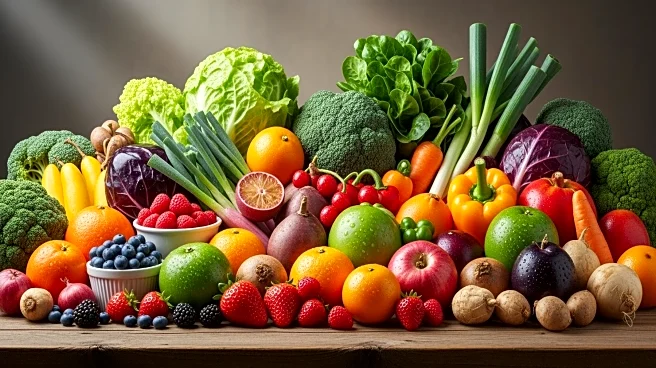What's Happening?
As COP30 approaches in Belém, Brazil, Slow Food is urging global leaders to prioritize the just transition of food systems in climate negotiations. The organization emphasizes that food is both a driver
and a victim of the climate crisis, yet it holds the potential to be a powerful solution. Slow Food calls for COP30 to be a turning point where food, culture, and climate are integrated into policy decisions. The organization highlights the need for concrete actions and incentives to transition to agroecology and build equitable food systems.
Why It's Important?
The call for food justice at COP30 underscores the critical link between food systems and climate resilience. Transforming global food systems is essential to addressing the climate and biodiversity crises, as current practices could push the world beyond the 1.5°C limit set by the Paris Agreement. By advocating for agroecological practices and equitable food systems, Slow Food aims to empower communities and ensure sustainable food production and consumption. This approach could lead to significant environmental and social benefits, particularly in the Global South.
What's Next?
COP30 is expected to deliver tangible actions and updated national climate plans that include clear targets for food system transformation. These plans should address every stage of the food chain, from production to consumption, and be backed by adequate funding. Slow Food's advocacy may influence the inclusion of food systems in climate policy, potentially leading to increased support for agroecological practices and financial flows that benefit farmers and ecosystems.
Beyond the Headlines
The integration of food justice into climate policy could have long-term implications for global food security and environmental sustainability. By prioritizing agroecology and equitable food systems, COP30 could pave the way for a more resilient and just global food landscape, addressing both climate and social challenges.









